Introduction
How long do rabbits live? Let’s find out.
Picture this: a world where rabbits hop and play, their charming little noses twitching with curiosity. But beyond their adorable appearances lies a fascinating tale, filled with adventures and challenges that shape their very existence.
From the rugged landscapes of the Arctic to the scorching deserts, we will witness firsthand how environmental conditions shape the lives of wild rabbits. We’ll uncover the remarkable adaptations they possess, their struggles against predators, and sadly, the impact of human interference on their delicate ecosystems.
But that’s not all! We’ll also explore the secrets of domesticated rabbits, those fluffy companions that bring joy and laughter to our lives.
We’ll even dive into the fascinating world of rabbit genetics, uncovering the mysteries that lie within their DNA and how it shapes their lifespan.
But here’s the most thrilling part: we’ll learn how we can directly impact the lifespan of our beloved hoppers. From providing a balanced diet and a safe living environment to reducing stress and engaging in meaningful social interaction, we hold the keys to unlocking a longer, happier life for our fluffy companions.
So, join me on this journey as we immerse ourselves in the world of rabbits and dive into the secrets of their miraculous existence. Together, we’ll celebrate the wonders of nature, the intricate dance of environmental conditions and genetic variations, and the immeasurable joy that comes from caring for these extraordinary creatures.
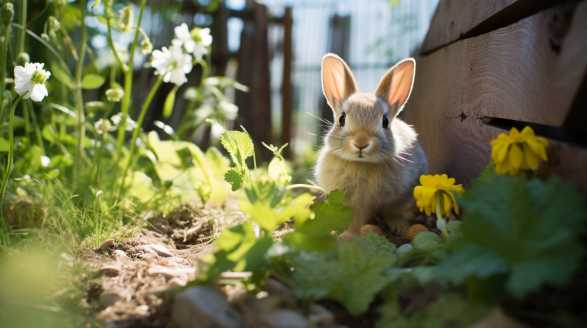
Key Takeaways
- Environmental conditions, diet, genetics, and social interaction all play significant roles in the lifespan of rabbits.
- Providing a safe and secure shelter, adapting to the appropriate climate, and ensuring a diverse and balanced diet can positively impact the lifespan of wild rabbits.
- Domesticated rabbits require a balanced diet, a suitable living environment, routine veterinary care, mental stimulation, and reduced stress to maximize their lifespan.
- Social interaction with both humans and other rabbits is crucial for the well-being and longevity of domesticated rabbits.
- Genetic factors, including family history, breed-specific traits, telomere length, immune system strength, and the presence of genetic disorders, can influence a rabbit’s lifespan.
- Dental health is a critical aspect of a rabbit’s well-being and can impact its lifespan. Regular dental care and a proper diet can prevent dental issues and promote a longer life.
- Exercise, proper nutrition, regular veterinary care, and reduced stress are key factors in prolonging a rabbit’s lifespan.
- Common diseases and health issues that can impact a rabbit’s lifespan include dental problems, gastrointestinal issues, respiratory problems, and parasitic infestations.
- Preventive measures such as a balanced diet, regular grooming, clean living environment, and proactive veterinary care can help mitigate the impact of these health issues and increase a rabbit’s lifespan.
How Do Environmental Conditions Affect the Lifespan of Wild Rabbits?
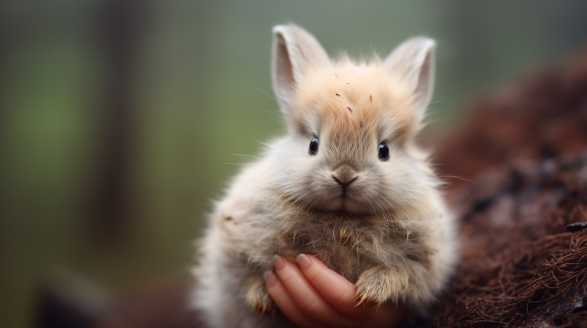
As a nature enthusiast, one question that has always intrigued me is how environmental conditions play a significant role in shaping the lifespan of wild rabbits. These adorable creatures hop around, seemingly carefree, but their lives are deeply intertwined with the elements around them.
The Wonders of Adaptation
Wild rabbits are true masters of adaptation. Over centuries, they have evolved to survive in diverse climates and habitats, from cold Arctic regions to scorching deserts.
Let’s look into some of the key elements that have a direct impact on their lifespan.
Shelter and Protection
A safe and secure shelter is vital for the survival and longevity of wild rabbits. Natural burrows, often dug by their predecessors or other animals, provide a sanctuary against extreme temperatures, predators, and other potential threats.
Climate and Temperature
Rabbits are found across a wide range of habitats globally, each with its unique climate and temperature conditions. Extreme temperatures can be detrimental to their health and survival.
Their ability to adapt to the given climate directly impacts their lifespan.
Food and Nutritional Resources
An abundant and diverse food supply is essential for the survival of wild rabbits. They are herbivores with a particular fondness for grasses, leaves, and vegetables.
The availability and variety of food sources greatly influence their overall health and longevity.
Predators in the Wild
Life in the wild is anything but safe for our furry friends. Numerous predators lurk in their surroundings, including foxes, coyotes, birds of prey, and even domestic pets.
Natural instincts and adaptive behavior play vital roles in their survival.
Human Interference and Rabbit Diseases
Unfortunately, human interference can indirectly impact the lifespan of wild rabbits. Habitat destruction, pollution, and the introduction of non-native species disrupt the delicate balance of their ecosystems.
Natural Selection and Genetic Variations
Nature’s Playground
Evolutionary changes in wild rabbit populations are driven by natural selection. Genetic variations within the species play a crucial role in their ability to adapt to different environmental conditions.
The Role of Stress
Just like humans, rabbits experience stress. Environmental factors, such as noise, habitat disruption, and limited resources, can induce stress in wild rabbits.
Minimizing stress-inducing elements is essential for the well-being and longevity of these delightful creatures.
Impact of Urbanization on Rabbit Lifespan
With the expansion of urban areas, wild rabbits have increasingly found themselves in close proximity to human environments. Although some rabbits have adapted well to urban life, others face numerous challenges.
Climate Change and Rabbit Habitats
Climate change presents a significant threat to all forms of life, including wild rabbits. Rising temperatures, changes in precipitation patterns, and shifting habitats profoundly affect the availability of food, water, and shelter for rabbits.
Understanding the environmental factors affecting the lifespan of wild rabbits is an essential aspect of preserving their delicate existence. As we explore the interconnectedness of their habitats, predators, food sources, and climate, we begin to grasp the overall complexity of their lives.
So let’s embark upon this journey together and celebrate the wonders of nature, appreciating the intricate dance of environmental conditions and wild rabbit longevity.
Factors Affecting the Lifespan of Domesticated Rabbits
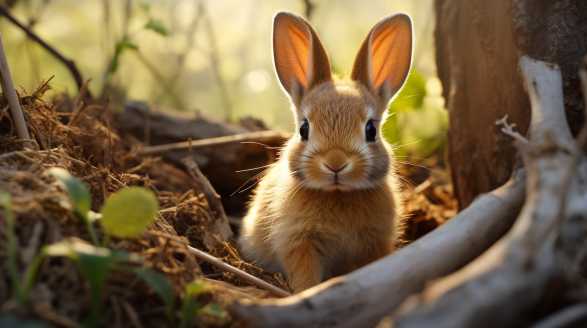
As a proud rabbit owner for several years, I’ve always been fascinated by these adorable creatures and their unique characteristics. One aspect of rabbit care that often goes unnoticed is the lifespan of these domesticated furry friends.
A Balanced Diet: The Key to Longevity
A rabbit’s diet plays a significant role in determining its lifespan. Providing your furry friend with a balanced and nutritious diet is essential for their overall health and longevity.
- Hay: Rabbits are herbivores, and their diet should consist mostly of hay. High-quality grass hay, such as Timothy hay, helps maintain good dental health and provides necessary fiber.
- Fresh Vegetables: Including a variety of fresh vegetables in your rabbit’s diet is vital. Leafy greens like romaine lettuce, kale, and spinach are excellent choices. Carrots and bell peppers can be given as occasional treats.
- Limited Pellets: Commercial rabbit pellets should be a small portion of your rabbit’s diet, as they tend to be high in calories and low in fiber. It’s best to consult with a veterinarian regarding appropriate pellet amounts for your rabbit’s age and activity level.
Maintaining a Healthy Environment
The living environment significantly contributes to a rabbit’s quality of life and ultimately affects their lifespan. Here are some factors to consider when creating a conducive living space:
- Space and Exercise: Rabbits need plenty of space to hop around and exercise. Keeping them confined to a small cage can lead to health issues like obesity and muscle degeneration. Consider providing your rabbit with a spacious enclosure or allowing them supervised free-roaming time in a bunny-proofed area.
- Temperature and Humidity: Rabbits are susceptible to extreme temperatures. Ensure their living space has a suitable temperature range between 50°F and 70°F (10°C to 21°C) with low humidity to prevent heatstroke or hypothermia.
- Cage Hygiene: Regularly cleaning your rabbit’s living area eliminates the risk of infections and keeps them healthy. It’s essential to remove soiled bedding and litter frequently and provide fresh water daily.
Routine Veterinary Care for Optimal Health
Regular veterinary care is crucial to maintaining your rabbit’s overall health and detecting potential problems early. Here are some aspects to keep in mind:
- Vaccinations: Consult with a veterinarian about appropriate vaccinations for your rabbit. Vaccinations protect against fatal diseases such as viral hemorrhagic disease and myxomatosis.
- Neutering or Spaying: Having your rabbit neutered or spayed has numerous health benefits. It prevents reproductive cancers and reduces the risk of aggressive behavior and urine spraying.
- Parasite Prevention: Routine checks for external parasites like fleas and mites, as well as internal parasites like worms, are essential for your rabbit’s health. Your veterinarian can recommend appropriate preventatives and treatments.
Mental Stimulation and Social Interaction
Rabbits are intelligent and sociable animals that require mental stimulation and social interaction to thrive. Neglecting their mental and social needs can impact their overall well-being and lifespan.
- Toys and Chews: Providing chew toys and toys that encourage foraging can keep your rabbit mentally stimulated. Chew toys are also essential for dental health.
- Playtime: Regular playtime and interaction with your rabbit are crucial. Gently petting and grooming your rabbit strengthens your bond and provides mental stimulation.
- Companionship: Rabbits are social animals and benefit from having companions. However, it’s essential to ensure proper introductions when introducing a new rabbit to your existing one.
Reducing Stress and Handling with Care
Stress can have a significant impact on a rabbit’s overall health and lifespan. Proper handling and reducing stressful situations can greatly contribute to your rabbit’s well-being.
- Gentle Handling: Always handle rabbits with utmost care, supporting their hind end and avoiding sudden movements. This minimizes stress and reduces the risk of injury.
- Safe Hideouts: Rabbits need safe hiding spots within their living space to retreat and feel secure. Providing appropriate hideouts such as a cardboard box with a hole can reduce stress levels.
- Avoiding Predators: Rabbits are prey animals, and the presence of potential predators like dogs or cats can cause immense stress. Ensure your rabbit’s living area is secure and away from such animals.
The lifespan of a domesticated rabbit is influenced by several factors, including diet, environment, veterinary care, mental stimulation, and stress levels. By providing a balanced diet, a suitable living environment, routine veterinary care, mental stimulation, and reducing stress, you can ensure your rabbit stays healthy and lives a long and happy life.
The Influence of Social Interaction on Rabbit Longevity: A Scientific Perspective
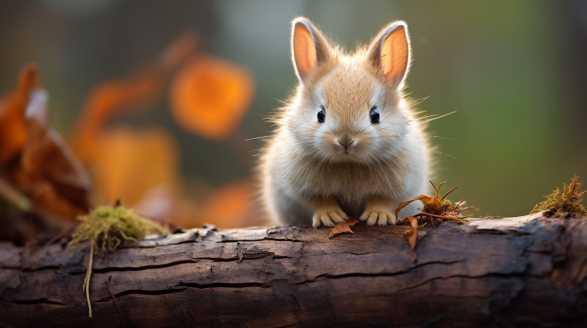
As a lover of rabbits, I have always been fascinated by how their social interactions can impact their overall health and longevity. I will look into the scientific perspective on the influence of social interaction on rabbit longevity.
The Importance of Social Interaction
Rabbits are social animals by nature, and their well-being strongly relies on meaningful social interactions. Here are some key reasons why social interaction is so vital for their longevity:
- Mental Stimulation: Engaging in social activities provides mental stimulation and prevents boredom, just like it does for humans. This mental enrichment positively affects a rabbit’s overall well-being and may contribute to a longer life.
- Reduced Stress Levels: Social interaction can help rabbits feel more at ease and reduce stress levels. Chronically elevated stress can have negative effects on their immune system, making them more susceptible to diseases and potentially shortening their lifespan.
- Emotional Support: Rabbits are highly sensitive creatures and form strong emotional bonds with their companions. Having a close social group can provide emotional support and alleviate feelings of loneliness or anxiety.
Social Hierarchy and Rabbit Longevity
Rabbits, much like other social animals, establish a social hierarchy within their groups. This hierarchy plays a crucial role in their social dynamics and can impact their longevity.
- Dominant vs. Subordinate: In a group of rabbits, there is usually a dominant individual who holds a higher social rank. Research has shown that subordinate rabbits often experience higher stress levels due to the need to constantly assert their place within the hierarchy. This ongoing stress may have detrimental effects on their overall health and lifespan.
- Social Bonding: Strong social bonds within a group can contribute to a harmonious hierarchy and reduce aggressive behaviors. A well-established hierarchy with minimal conflicts promotes a more stable and stress-free environment, enhancing the longevity of all group members.
The Benefits of Group Living
Rabbits are naturally sociable creatures and thrive when living in groups. Group living brings a variety of benefits that positively influence their lifespan:
- Increased Alertness: When living in a social group, rabbits benefit from shared vigilance. They can take turns keeping watch for predators, enabling them to react quickly and increase their chances of survival.
- Grooming Behavior: Social grooming is not only an essential bonding activity among rabbits, but it also helps in controlling parasites and maintaining good hygiene. Regular grooming can prevent the development of health issues, indirectly contributing to a longer lifespan.
- Dietary Influence: Group living can have a positive impact on a rabbit’s diet. By observing and imitating their companions, rabbits can learn about suitable food sources and make better dietary choices. A well-balanced diet is crucial for their overall health and longevity.
Loneliness and Its Effects
Just like humans, rabbits can experience loneliness, which may have negative consequences for their longevity. Here’s how it can affect them:
- Decreased Mental Stimulation: A lack of social interaction deprives rabbits of mental enrichment and can lead to boredom, depression, and decreased overall mental well-being. This can have a direct impact on their longevity.
- Increased Stress and Anxiety: Loneliness can elevate stress levels in rabbits. Chronically elevated stress levels can weaken their immune system and make them more susceptible to diseases, potentially shortening their lifespan.
- Behavioral Abnormalities: Rabbits that lack social interaction may display behavioral abnormalities such as excessive aggression or self-destructive behaviors. These abnormal behaviors can lead to further health complications and reduce their lifespan.
Tips for Encouraging Social Interaction
It is essential to promote social interaction among rabbits to ensure their well-being and longevity. Here are some practical tips to encourage socialization:
- Getting a Companion: If you have a solo rabbit, consider getting them a suitable companion. Ensure that the rabbits are introduced properly, following guidelines from experienced rabbit rescues or veterinarians.
- Socialization Time: Allocate dedicated time each day to interact with your rabbit. Engage in activities such as grooming, gentle play, or supervised exploration outside the enclosure to stimulate their social needs.
- Enrich the Environment: Provide your rabbits with an enriched environment that encourages social interaction. This can include hiding spots, tunnels, and toys that promote exploration and play.
From the importance of social interaction to the benefits of group living, the influence of social interaction on rabbit longevity is evident. By understanding and fulfilling their social needs, we can enhance the well-being and lifespan of these furry companions.
Longest Recorded Lifespan of a Domestic Rabbit: A Fascinating Case Study
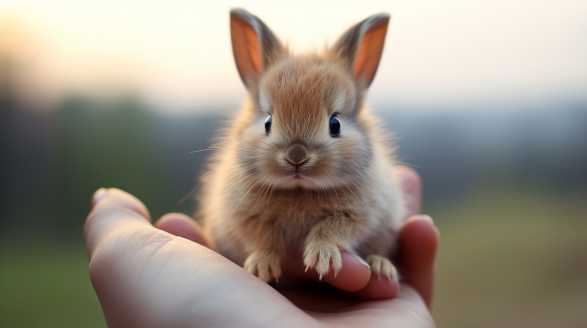
Have you ever wondered how long a domestic rabbit can actually live? Now, I must admit, I am not your average rabbit enthusiast.
We are going to embark on an journey together to uncover the secrets of the longest recorded lifespan of a domestic rabbit. Buckle up, my friends, because this is going to be a wild ride!
The Astonishing Journey Begins
Setting the Stage
Picture this: a humble rabbit named Floppy, born in a small town, found her way into the loving arms of a devoted rabbit owner. Little did they know, this adorable ball of fluff would soon captivate the world with her record-breaking lifespan.
So, let’s dive in and discover the incredible details of her journey.
The Unlikely Snowball Effect
A Serendipitous Start
Like any ordinary rabbit, Floppy began her life munching away on carrots and hopping around her cozy cage. Little did she know that her unsuspecting adventure would make her an overnight sensation in the rabbit world.
A Life of Purpose
Floppy’s devoted owner, let’s call her Susan, provided her with the utmost care and attention. Floppy feasted on a balanced diet of fresh greens, high-quality pellets, and even the occasional treat.
The Rabbit Whispers
Floppy’s story soon caught wind within the rabbit community. Rabbit enthusiasts and experts alike were in awe of her vitality and longevity.
The Secrets Unveiled
Aged to Perfection
Healthy Habits
Floppy’s astonishing lifespan was not a mere coincidence. Susan’s diligent care played a vital role in her rabbit’s record-breaking longevity.
- Regular exercise in a safe and spacious environment.
- A balanced diet rich in fresh hay, vegetables, and rabbit-safe treats.
- Providing clean and fresh water at all times.
- Grooming sessions to ensure a clean and well-maintained coat.
- Regular vet visits for check-ups and vaccinations.
Stress-Free Environment
Creating a stress-free environment was perhaps one of the most critical factors in Floppy’s long and healthy life. Susan provided Floppy with a quiet and peaceful living space, away from loud noises and excessive commotion.
The Power of Love
The Bond Between Floppy and Susan
Susan’s unwavering love, care, and companionship played a significant role in Floppy’s longevity. Rabbits, like humans, thrive in a nurturing and loving environment.
The Rabbit Legacy
Passing the Torch
Floppy’s influence did not end with her exceptional lifespan. Susan became an advocate for responsible rabbit ownership, educating others on the importance of proper care and understanding the needs of these furry companions.
Inspiring Others
Floppy’s story touched the hearts of many rabbit owners worldwide, inspiring them to provide the same level of care and love for their own furry friends. Her legacy lives on as her remarkable journey continues to encourage others to cherish and understand the needs of their domestic rabbits.
Floppy’s journey will forever serve as a beacon of hope and inspiration for all rabbit lovers. Her record-breaking lifespan of a domestic rabbit sheds light on the importance of dedicated care, a stress-free environment, and the power of love.
So, let’s embark on this incredible rabbit adventure together and ensure our fluffy friends have the best chance at an exceptional lifespan!
The Impact of Exercise on the Longevity of Rabbits
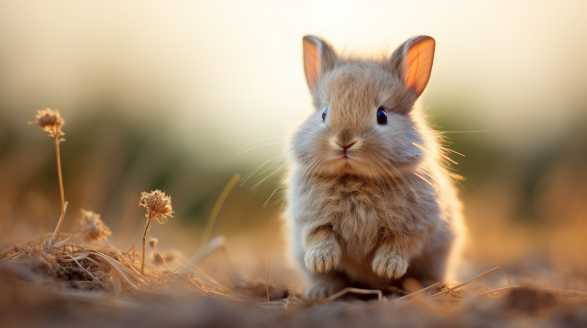
When it comes to the longevity of rabbits, one factor that plays a significant role is exercise. Yes, you heard it right!
So, let’s dive into the fascinating world of bunnies and explore how exercise can make a remarkable difference in their overall health and longevity.
Why Exercise Matters for Rabbits
It’s no secret that exercise is essential for maintaining good health and overall well-being. The same holds true for rabbits.
By keeping their bodies active and engaged, rabbits can improve their cardiovascular health, boost their immune system, and prevent various health conditions.
Now, let’s break down some of the key ways exercise impacts the longevity of rabbits:
1. Weight Management
By incorporating exercise into a rabbit’s daily routine, we can help them maintain a healthy weight. Obesity is a common problem among rabbits, and it can significantly impact their quality of life and lifespan.
2. Mental Stimulation
Just like humans, rabbits need mental stimulation to thrive. Exercise stimulates their senses, keeps their mind active, and prevents boredom.
So, by providing opportunities for exercise, you’re not just keeping your bunny physically fit but also mentally stimulated.
3. Digestive Health
Exercise also plays a vital role in maintaining a rabbit’s digestive health. Rabbits have unique digestive systems that require regular movement to function optimally.
By engaging in exercise, rabbits can keep their digestive system healthy and prevent such complications.
4. Strengthening Bones and Muscles
Regular exercise is essential for strengthening bones and muscles in rabbits. Just like humans, rabbits need weight-bearing activities to promote bone density.
This is particularly crucial as rabbits age, as it helps prevent age-related conditions such as arthritis and osteoporosis.
5. Cardiovascular Health
Believe it or not, rabbits can benefit from cardiovascular exercise too! Engaging in activities that get their heart rate up, such as running and hopping, can improve their cardiovascular health.
Whether your bunny lives indoors or outdoors, there are various ways to ensure they get enough exercise. Here are some activity ideas to incorporate into their daily routine:
Simple Ways to Encourage Exercise in Your Rabbit:
- Provide a stimulating living space: Create an environment with tunnels, ramps, and toys to encourage your rabbit to explore and move around.
- Take them for supervised outdoor play: If your rabbit enjoys fresh air, consider taking them outside for some supervised playtime in a secure and rabbit-proofed area.
- Play hide and seek: Hide treats or toys in different areas of your home, encouraging your rabbit to search and hop around.
- Set up a bunny agility course: Create a mini obstacle course with jumps, tunnels, and ramps to keep your bunny active and entertained.
- Rotate toys and activities: Keep your rabbit engaged by introducing new toys or rearranging their living space regularly.
Remember, it’s crucial to consult with a veterinarian before embarking on a new exercise routine for your bunny. They can provide guidance tailored to your rabbit’s unique needs, breed, and age.
Exercise is a powerful tool that can significantly impact the longevity and overall health of our beloved rabbits. By incorporating regular physical activity into their routine, we can help them maintain a healthy weight, stimulate their minds, promote good digestion, strengthen bones and muscles, and improve cardiovascular health.
So, let’s hop to it and ensure our furry companions enjoy an active and fulfilling life, full of vitality and happiness!
How Stress Levels Can Impact Rabbit Lifespan: Important Considerations
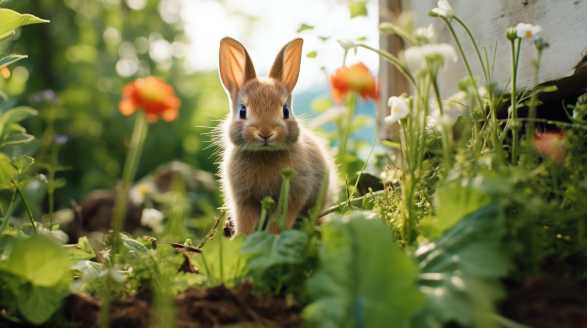
Introduction
Hi there, fellow rabbit enthusiasts! Today, I want to dive into a topic that often gets overlooked when it comes to our beloved furry friends: the impact of stress on their lifespan.
So, grab a carrot and let’s hop right in!
Understanding the Impact of Stress on Rabbits
Stressors That Affect Rabbits
Rabbits, like any other living beings, can experience stress. However, they are particularly susceptible to certain stressors due to their sensitive nature and behavior.
- Loud noises: Rabbits have keen hearing, and sudden loud sounds can startle them, causing stress.
- Lack of proper socialization: Rabbits are social animals and need companionship. Isolation can lead to anxiety and stress.
- Improper housing: Limited space, inadequate ventilation, and unsanitary conditions can cause chronic stress.
- Physical discomfort: Illness, parasites, or injury can significantly stress out rabbits.
- Prey instinct triggers: Predatory animals or even the presence of a perceived threat can keep rabbits on high alert, leading to chronic stress.
The Link Between Stress and Rabbit Lifespan
Chronic stress can have a profound impact on a rabbit’s overall health and lifespan. Here are important aspects to consider:
- Weakened immune system: Stress suppresses the immune system, making rabbits more susceptible to various illnesses and infections.
- Digestive issues: Stress can disrupt a rabbit’s delicate gastrointestinal tract, leading to digestive problems such as diarrhea or loss of appetite.
- Behavioral changes: Stressed rabbits may display abnormal behaviors like excessive chewing, self-grooming, or aggression, which can further deteriorate their health.
- Increased vulnerability to diseases: Chronic stress weakens rabbits’ defenses, making them more prone to respiratory infections, dental issues, and other health problems.
- Reduced lifespan: Unmanaged stress can ultimately shorten a rabbit’s life expectancy, as it puts a strain on their physical and mental well-being.
Steps to Minimize Stress in Rabbits
Now that we understand how stress can impact our fluffy companions, let’s explore ways to minimize stress and promote a long and healthy lifespan.
Provide a Safe and Stimulating Environment
- Spacious housing: Ensure your rabbit has ample room to explore, play, stretch, and hop around comfortably.
- Hideouts: Offer hiding places, tunnels, and boxes to provide shelter and a sense of security.
- Toys and Enrichment: Stimulate your rabbit’s mind by offering chew toys, interactive puzzles, and foraging activities.
Establish a Routine and Socialize
- Regular feeding schedule: Establish a consistent feeding routine to create a sense of security and predictability for your rabbit.
- Companionship: If possible, consider pairing your rabbit with a compatible bunny buddy to prevent feelings of loneliness and potential stress.
- Gentle handling: When handling your rabbit, always be gentle and avoid sudden movements or loud noises.
Minimize Potential Stressors
- Predatory animals: Keep rabbits away from areas where they can see or smell potential predators to alleviate stress.
- Noise reduction: Minimize loud noises by keeping your rabbit’s environment as quiet as possible.
- Veterinary check-ups: Regular check-ups can help detect and address any health issues early, reducing overall stress.
Promote a Healthy Lifestyle
- Balanced diet: Offer a diet rich in hay, fresh vegetables, and a controlled amount of pellets to maintain a healthy digestive system.
- Hydration: Ensure fresh water is always available to keep your rabbit hydrated and prevent urinary tract issues.
- Physical exercise: Encourage daily exercise by providing opportunities for your rabbit to hop, jump, and explore safely.
Bonding and Interaction
- Gentle grooming: Establish a grooming routine to strengthen the bond between you and your rabbit while keeping their fur neat and free of tangles.
- Playtime: Spend quality time playing and interacting with your rabbit, such as teaching them tricks or providing clicker training sessions.
- Positive reinforcement: Reward good behavior with treats or gentle praises to make your rabbit feel loved and appreciated.
Unlocking the Secret to a Long and Happy Rabbit Life
As dedicated rabbit owners, we must recognize the impact that stress can have on our furry friends’ lifespan. By understanding common stressors and implementing measures to minimize stress, we can promote a healthier and happier life for our beloved bunnies.
So, let’s hop on this journey together, championing the well-being of our adorable companions, one carrot at a time!
Genetic Factors That Influence Rabbit Lifespan: An Insightful Analysis
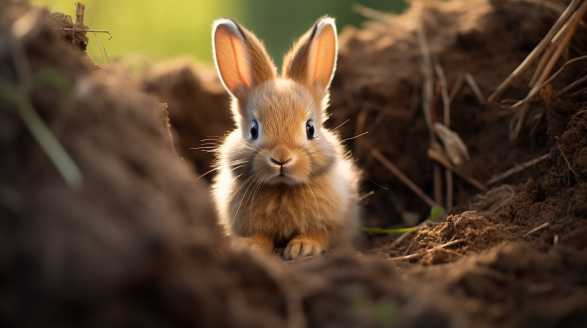
Rabbits are adorable creatures that bring joy and companionship to many homes. However, have you ever wondered why some rabbits live longer than others?
we will look into the fascinating world of genetic factors that influence rabbit lifespan. So, grab your carrot snacks and let’s hop right into it!
The Impact of Genes on Rabbit Lifespan
Genetics play a significant role in determining the lifespan of rabbits. These furry little creatures inherit specific genes from their parents, which can affect their overall health, resistance to diseases, and ultimately, their longevity.
1. Family History Matters
Similar to humans, rabbits also have a family history that influences their lifespan. If a rabbit’s ancestors had long and healthy lives, there’s a higher chance that the rabbit will also enjoy a longer lifespan.
2. Breed-Specific Genetic Traits
Different rabbit breeds have unique genetic traits that can impact their lifespan. Some breeds are known for their robust health and longevity, while others may be more susceptible to certain diseases or age-related conditions.
3. Telomeres: The Key to Rabbit Aging
Telomeres are protective caps on the ends of chromosomes that prevent their deterioration during cell replication. Over time, telomeres naturally shorten, leading to cell aging and eventual death.
These rabbits tend to have extended lifespans compared to their counterparts with shorter telomeres.
4. Immune System Strength
A robust immune system is crucial for the overall health and longevity of rabbits. Genetics can influence the strength and effectiveness of a rabbit’s immune system, affecting its ability to fight off diseases and infections.
5. Obesity and Genetic Predisposition
Obesity significantly impacts a rabbit’s lifespan. Just like humans, some rabbits have a genetic predisposition to gain weight more easily.
It is essential for rabbit owners to provide a balanced diet and regular exercise to prevent obesity and promote a longer, healthier life.
6. Genetic Disorders and Ailments
Certain genetic disorders and ailments can negatively affect a rabbit’s lifespan. These can range from hereditary conditions like dental malocclusion and inherited cancers to genetic disorders that impact vital organs.
7. Environmental Factors and Their Interaction with Genetics
While genetics significantly influence rabbit lifespan, environmental factors also play a vital role. Factors such as diet, living conditions, exercise, and access to veterinary care interact with genetic predispositions to determine a rabbit’s overall health and lifespan.
Genetic factors have a profound impact on rabbit lifespan. By understanding these factors and considering the genetic predispositions of specific breeds or individual rabbits, owners can make informed decisions to ensure optimal health and longevity for their furry companions.
So, let’s continue to cherish and care for these delightful creatures, ensuring their happiness and well-being for many hopping years to come!
The Significance of Dental Health in Determining Rabbit Lifespan
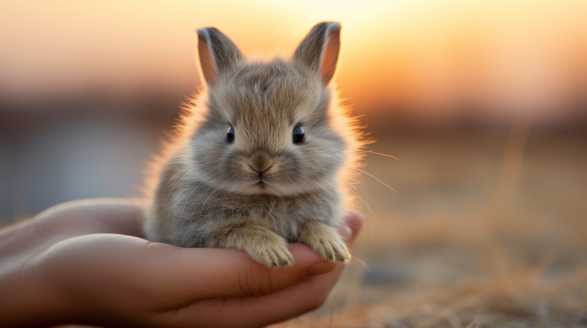
When it comes to rabbits, many people mistakenly believe that their small size and seemingly simple needs make them low-maintenance pets. However, one crucial aspect that often goes overlooked is dental health.
As a rabbit owner myself, I have come to understand the critical role that dental health plays in ensuring our furry friends live long and healthy lives.
Why Dental Health Matters
Rabbits, by nature, are herbivores. Their teeth have evolved to continuously grow throughout their lives to accommodate their diet, which primarily consists of fibrous vegetation.
However, it also presents potential challenges if their teeth are not properly maintained.
1. Chewing and Grinding: A Rabbit’s Teeth
Rabbits have two sets of teeth – a total of 28 teeth. The front incisors are noticeable and used for grasping and cutting food, while their back molars are less visible and primarily for grinding and chewing.
2. Dental Problems: A Silent Threat
Unfortunately, dental problems are all too common in rabbits. Due to their teeth continuously growing, if their diet and dental care are not properly managed, various problems can arise.
Identifying Dental Issues
Recognizing the signs of dental problems in rabbits is essential for early intervention and treatment. Here are some common indicators that your rabbit may be experiencing dental issues:
1. Changes in Eating Habits
If your rabbit suddenly starts refusing or struggling to eat, it could be a sign of dental problems. Difficulty in chewing, accompanied by excessive salivation, could indicate overgrown teeth or other dental abnormalities.
2. Weight Loss and Poor Condition
When a rabbit’s teeth aren’t functioning properly, they can have difficulty obtaining essential nutrients from their food. This can result in weight loss, reduced muscle mass, and an overall poor physical condition.
3. Dental Overgrowths
Regularly inspect your rabbit’s teeth to ensure they are not overgrown or misaligned. Overgrown teeth can cause pain, discomfort, and even damage to the mouth and surrounding tissues.
4. Watery Eyes and Facial Swelling
Dental problems can also manifest as watery eyes or swelling around the face, particularly in the cheek area. This is often a result of dental abscesses or infection, which require immediate veterinary attention.
Maintaining Good Dental Health
Prevention is always better than cure when it comes to dental health in rabbits. By establishing a proactive dental care routine, you can help ensure your pet’s teeth remain healthy and functional.
1. Proper Diet
A well-balanced diet is crucial for maintaining healthy teeth in rabbits. Providing a high-fiber diet consisting of quality hay, fresh greens, and limited pellets helps ensure proper tooth wear and development.
2. Chew Toys and Enrichment
Offering various chew toys and safe, bunny-friendly materials helps rabbits naturally wear down their teeth. These toys also provide mental stimulation, which is beneficial for a rabbit’s overall wellbeing.
3. Regular Teeth Checks
Schedule routine dental checks with a veterinarian who is experienced in rabbit care. They can assess your rabbit’s dental health and address any potential issues early on.
4. Proper Handling
When handling your rabbit, be gentle around their face and avoid applying excessive pressure. Inadvertently causing trauma to their jaw or mouth can lead to dental problems.
5. Prompt Veterinary Care
If you notice any signs of dental issues in your rabbit, seek veterinary care promptly. Early diagnosis and treatment can prevent further complications and discomfort.
Extending Your Rabbit’s Lifespan
By prioritizing dental health in your rabbit’s wellness routine, you can significantly extend their lifespan and enhance their quality of life. A healthy set of teeth ensures proper chewing, digestion, and nutrition absorption, all vital factors in promoting a long and happy life for your furry companion.
Caring for a rabbit involves much more than providing food, shelter, and warmth. Dental health is a paramount aspect that should never be overlooked.
Remember, a beautiful smile goes a long way, even in the animal kingdom.
Gender Differences in Rabbit Lifespan: Do Males and Females Age Differently?
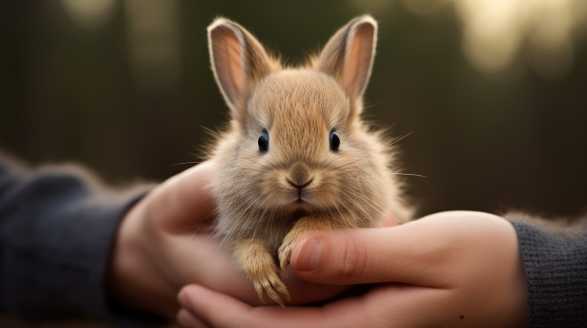
As I sit here, pondering the mysteries of life, my attention is suddenly drawn to a rather peculiar question: Do male and female rabbits age differently? It may sound like an odd inquiry, but I assure you, it is a topic worth exploring.
Prepare yourself for a journey of discovery!
The Rabbit Life Cycle: A Brief Overview
Before we look into the specifics of gender differences in lifespan, let’s take a moment to understand the rabbit life cycle. Rabbits are fascinating creatures with a relatively short lifespan compared to other animals.
But here’s the real question: Does this lifespan vary between males and females?
The Battle of the Sexes: Unveiling the Differences
1. Differences in Longevity
It’s time to reveal the truth. Yes, there are indeed gender differences in rabbit lifespan.
This may come as a surprise, but it’s an intriguing fact worth exploring. Female rabbits often surpass the 10-year mark, while males typically live for around 8 to 9 years.
2. Reproductive Challenges
One of the reasons behind this gender difference in lifespan lies in the reproductive challenges that female rabbits face. Female rabbits have the unique ability to reproduce at an astonishing rate.
Frequent pregnancies and the strain of producing offspring take a toll on their overall health, leading to a shorter lifespan.
3. Estrogen’s Influence
Estrogen, the primary female sex hormone, plays a significant role in the aging process of rabbits. It has been observed that estrogen can have both positive and negative effects on lifespan.
Aging Gracefully: Factors That Impact Lifespan
Now that we’ve discussed the gender differences in rabbit lifespan, let’s dig deeper into the factors that impact aging and longevity in these furry creatures.
1. Genetic Factors
Genes have a profound influence on a rabbit’s lifespan. Just as in humans, certain genetic traits can make rabbits more susceptible to age-related diseases and conditions.
2. Diet and Nutrition
Maintaining a well-balanced diet is crucial for rabbits to live a long and healthy life. Proper nutrition ensures that rabbits receive the essential vitamins, minerals, and nutrients needed for their bodies to function optimally.
3. Environmental Factors
The environment in which rabbits live can also play a role in their lifespan. Temperature, humidity, and the overall living conditions can affect their overall well-being.
4. Healthcare and Veterinary Care
Regular veterinary check-ups and proper healthcare are essential to ensure the well-being of rabbits. Vaccinations, parasite control, and preventive care can help detect and treat any potential health issues early on, increasing their chances of a longer life.
The Quest for Answers: Unanswered Questions
While we have uncovered some fascinating insights into the gender differences in rabbit lifespan, there are still unanswered questions that baffle scientists and researchers alike. Some of the lingering mysteries include:
1. Impact of Neutering/Spaying
The impact of neutering or spaying on rabbit lifespan remains a subject of debate. While these procedures have numerous health benefits, their direct effect on longevity is not entirely understood.
2. Species-Specific Differences
It’s important to mention that the gender differences in rabbit lifespan may vary among different rabbit breeds and species. Some species may exhibit more pronounced differences, while others may have minimal variations.
As our quest to understand the gender differences in rabbit lifespan draws to a close, we realize that the world of rabbits is filled with perplexities and unanswered questions. From the impact of estrogen and reproductive challenges for females to the influence of genetics and environmental factors, there are many intriguing aspects to explore.
Remember, these findings are not set in stone. The world of science is constantly evolving, and new discoveries may unravel even more exciting truths about the mysteries of rabbit lifespan.
It’s a topic that will continue to both perplex and captivate us for years to come.
The Average Lifespan of Different Rabbit Breeds: A Comparative Study
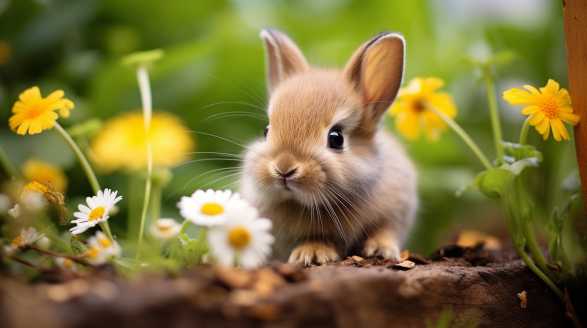
I must admit, I have always been fascinated by rabbits. Their cute little noses and fluffy tails have always captivated my attention.
I will look into the average lifespan of different rabbit breeds, presenting you with a comparative study that will surely leave you amazed.
Why Rabbit Lifespan Matters
Before we jump into the nitty-gritty details, let’s take a moment to understand why the lifespan of rabbits is such an intriguing topic. Knowing how long a particular breed can live helps us plan for their care and understand their needs better.
The Mighty Mini Lops
Let’s start our exploration with the Mini Lops, an incredibly popular breed among rabbit enthusiasts. These delightful creatures, known for their luscious lop ears, typically live for 7-10 years.
The Energetic Dutch Rabbits
Moving on, we come to the Dutch Rabbits. These lively and energetic little balls of fur tend to live for around 5-8 years.
Just imagine the joy they can bring during their precious years!
The Elegant Angoras
Now, let’s talk about the luxurious Angoras. These rabbits with their majestic coats require extra attention and care.
Their silky fur alone is enough to make any rabbit lover weak at the knees.
The Charismatic Californians
Moving on to the Californian rabbits, we discover a breed known for its striking looks and friendly disposition. These charmers usually live for 5-8 years, making them a joy to have around.
The Playful Lionheads
Have you ever seen a rabbit with a glorious mane like a lion? Look no further than the Lionhead breed.
On average, Lionheads enjoy a lifespan of 7-10 years, ensuring years of companionship.
The Agile Harlequins
For those looking for an agile and active rabbit breed, the Harlequin is a perfect choice. Known for their athletic prowess, these rabbits can live for about 6-9 years.
The Majestic Flemish Giants
Now, let’s turn our attention to the magnificent Flemish Giants. These rabbits are not only famous for their massive size but also for their gentle and friendly nature.
The Spirited English Spots
English Spots, oh, how they steal our hearts with their distinctive spotted coats and playful personalities! These spirited rabbits usually live for 5-7 years, ensuring a good amount of time for us to enjoy their mischief and charm.
The Earsome Dwarf Hotots
Finally, we have the tiny yet mighty Dwarf Hotots. These adorable rabbits, with their distinctive black eye rings, can live for an astonishing 8-12 years.
Just imagine all the cuddles and companionship they can provide during their astonishingly long lives!
Key Factors Affecting Rabbit Lifespan
Now that we’ve explored the average lifespan of various rabbit breeds, let’s touch on some crucial factors that can impact their longevity:
- Diet and Nutrition: Providing rabbits with a balanced diet rich in hay, fresh vegetables, and small amounts of pellets significantly contributes to their overall health and lifespan.
- Exercise and Mental Stimulation: Just like humans, rabbits benefit from regular exercise and mental stimulation. Ensuring they have enough space to hop around and providing them with toys and challenges can improve their well-being and extend their lives.
- Veterinary Care: Regular check-ups with a rabbit-savvy veterinarian are essential for preventing and managing any potential health issues. Vaccinations and parasite prevention measures can play a significant role in extending a rabbit’s lifespan.
- Living Environment: Creating a safe and stimulating living environment is vital for rabbits’ health and happiness. Providing them with suitable housing, protection from extreme temperatures, and plenty of opportunities for play and exploration can help them thrive.
By paying attention to these key factors and tailoring our care accordingly, we can increase the chances of our beloved rabbits experiencing a long and fulfilling life.
As I conclude this comparative study on the average lifespan of different rabbit breeds, I can’t help but marvel at how these fluffy creatures fill our lives with joy and companionship. While each breed has its own unique characteristics, all rabbits share a common bond: they depend on us for their well-being and happiness.
So, let’s cherish these wonderful creatures, provide them the care they need, and watch them thrive in our loving homes. The world of rabbits is full of surprises, and their lifespan is just one intriguing aspect that leaves us in awe.
The Role of Diet and Nutrition in Determining Rabbit Lifespan
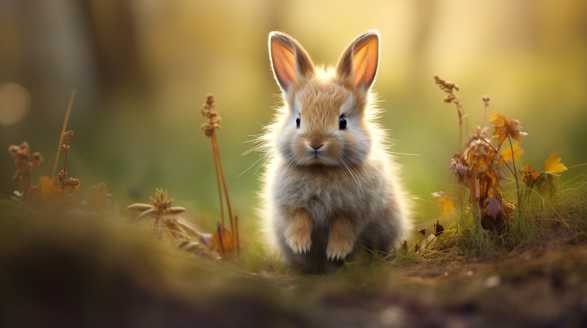
As a rabbit owner and enthusiast, one question that has always puzzled me is: what is the secret to a long and healthy life for these adorable creatures? After hours of research and talking to experts in the field, I have come to realize just how crucial diet and nutrition are for determining a rabbit’s lifespan.
Rabbits are herbivores, meaning their diet consists primarily of plant material. Their digestive systems are specifically designed to process fiber-rich foods, such as hay, grass, and leafy greens.
Let’s delve deeper into the world of rabbit nutrition.
The Basics of a Rabbit’s Diet
Feeding your rabbit a varied diet is essential for maintaining its overall health and longevity. Here are some key elements to consider when it comes to their diet:
- Hay: The foundation of a rabbit’s diet. High-quality grass hay, such as Timothy or Meadow hay, is essential for providing the necessary fiber. This aids in proper digestion, prevents hairballs, and keeps their teeth well-worn.
- Fresh Leafy Greens: Leafy greens provide essential vitamins and minerals. Offer a variety of greens, such as romaine lettuce, cilantro, parsley, and kale. However, be cautious about the amount of high-oxalate greens like spinach and kale, as they can contribute to bladder issues.
- Vegetables: Carrots, bell peppers, and cucumbers are great vegetable choices for rabbits. Make sure to introduce new vegetables gradually to prevent digestive upset.
- Limited Fruits: While rabbits love fruits, they should be given as treats due to their high sugar content. Offer small portions of fruits like apples, strawberries, and blueberries.
- Pellets: Select high-quality rabbit pellets without added sugars or fillers. Use them sparingly, as hay should make up the majority of their diet.
The Impact of Nutrition on Rabbit Longevity
Now that we understand the basics of a rabbit’s diet, let’s explore how it directly affects their lifespan.
1. Promoting Digestive Health and Preventing Obesity
A diet rich in fiber helps prevent common digestive issues, such as gastrointestinal stasis or bloat. By providing unlimited access to hay, we ensure rabbits can maintain their gut motility and avoid life-threatening conditions.
Additionally, a well-balanced diet helps prevent obesity, a problem that is increasingly prevalent among pet rabbits. Obesity can lead to a myriad of health issues, including arthritis, heart disease, and decreased lifespan.
2. Dental Health and Chewing Needs
Rabbits’ teeth continuously grow throughout their lives. A diet consisting of hay and tougher fibrous materials helps wear down their teeth naturally, preventing painful dental problems.
3. Strengthening the Immune System
Optimal nutrition plays a vital role in supporting a rabbit’s immune system. Providing a wide range of fresh leafy greens and vegetables ensures they receive crucial vitamins, minerals, and antioxidants.
4. Managing Weight and Preventing Gastrointestinal Disorders
Feeding a balanced diet with controlled portions is essential for maintaining a healthy weight in rabbits. Obesity can contribute to various gastrointestinal disorders, such as enteritis and hepatic lipidosis.
In the world of rabbits, food is more than just sustenance—it’s a cornerstone for ensuring a long, fulfilling life. From providing an abundance of high-quality hay to introducing a diverse array of leafy greens and vegetables, our furry friends thrive on a carefully balanced diet.
By understanding the intricacies of a rabbit’s dietary needs and the impact it has on their overall health, we hold the key to extending their lifespan and enhancing their quality of life. So, let’s embrace the vital role that diet and nutrition play in the enchanted journey of our beloved rabbits.
Remember, keeping your rabbits healthy is an adventure full of surprises, and by nourishing them with love and the right nutrition, you’ll create memories that last a lifetime!
How to Increase the Lifespan of Your Pet Rabbit: Tips and Tricks
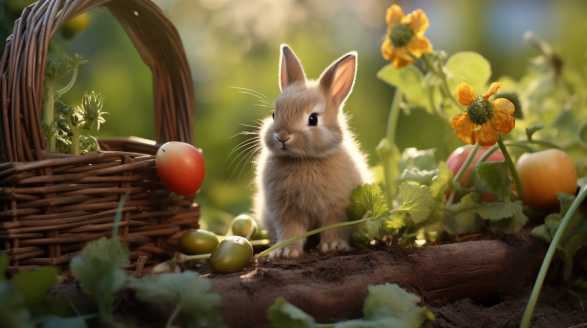
As a proud rabbit owner for several years, I have learned valuable tips and tricks that can dramatically increase the lifespan of your beloved furry friend. Rabbits are delightful and charming creatures, and with proper care, they can live a long and healthy life.
So let’s hop right into it!
1. Provide a Balanced Diet
A nutritious diet plays a vital role in enhancing your rabbit’s lifespan. Ensure that their daily meals consist of:
- High-quality Timothy hay: Rich in fiber and essential for proper digestion.
- Fresh vegetables: Examples include carrots, spinach, and kale. Rotate the veggies to offer variety and necessary nutrients.
- Limited pellets: Opt for high-fiber pellets, keeping in mind that rabbits over six months of age should consume them sparingly.
2. Fresh Water Is a Must
Just like humans, rabbits need a constant supply of fresh water. Ensure that your bunny has access to clean water at all times.
3. Bunny-Proof Your Home
Creating a safe environment for your rabbit is essential. Ensure the following steps to protect your furry friend from harm:
- Remove toxic plants: Many common household plants are toxic to rabbits. Check and remove any potentially dangerous flora.
- Cover electrical cords: Rabbits love to chew, and exposed cords can pose significant danger. Use protective covers or keep cords out of reach.
- Secure cabinets and drawers: Prevent your bunny from accessing places where they could ingest harmful substances.
- Breakable objects: Avoid accidents by placing delicate items out of reach.
4. Regular Veterinarian Check-ups
Regular visits to the veterinarian are crucial for your rabbit’s health. Some key check-ups and treatments to consider include:
- Vaccinations: Protect your rabbit against diseases like Myxomatosis and Viral Hemorrhagic Disease (VHD).
- Spaying or neutering: These procedures can prevent certain health issues, aggression, and unwanted litters.
- Teeth checks: Rabbit teeth grow continuously, and regular dental check-ups can identify any issues early on.
5. Encourage Exercise and Mental Stimulation
Rabbits require physical activity and mental stimulation to stay healthy and happy. Here’s how to keep them entertained:
- Provide toys: Rabbits love to chew and toss toys. Offer safe toys made from materials like wood, cardboard, or natural fiber.
- Create a play area: Dedicate a rabbit-proofed space where your pet can roam and explore freely, ensuring they can’t escape or get stuck.
- Playtime: Spend quality time with your rabbit every day, engaging in gentle play and bonding activities.
6. Grooming for Good Health
Proper grooming maintains your rabbit’s cleanliness and overall health. Follow these grooming tips:
- Regular brushing: Gently brush your rabbit’s fur to prevent matting and remove loose hair.
- Nail trimming: Rabbits’ nails can grow long and sharp, causing discomfort and injury. Have a veterinarian or an experienced person show you how to trim them safely.
- Dental care: Provide wooden toys or specialized chews to help wear down your rabbit’s continuously growing teeth.
7. Avoid Stress and Provide a Safe Haven
Rabbits are sensitive creatures and can easily become stressed. Minimize stress factors by:
- Providing a quiet spot: Create a cozy area with hiding spots where your rabbit can retreat to when feeling anxious or tired.
- Avoid loud noises: Rabbits have delicate ears, and loud sounds can stress them. Keep their surroundings calm and peaceful.
- Handle with care: Always approach your rabbit with gentleness and avoid sudden movements to build trust and reduce stress.
8. Be Mindful of Temperature and Climate
Rabbits are susceptible to extreme temperatures. Optimal conditions for your bunny include:
- Indoors or outdoors? Decide if your rabbit is best suited for a climate-controlled indoor environment or if they prefer to live in a safe and protective outdoor hutch.
- Extreme heat: Provide shade and cool water during hot months to prevent heatstroke.
- Cold weather: Ensure your outdoor hutch is well-insulated and protected from drafts. Consider moving your indoor rabbit away from cold windows during winter.
9. Socialization Is Key
Rabbits are social animals and benefit from companionship. Consider:
- Bonding rabbits: Pair your furry friend with a compatible rabbit to provide social interaction and reduce loneliness.
- Interaction with humans: Spend quality time interacting, talking, and providing gentle affection to strengthen your bond with your rabbit.
Your pet rabbit’s lifespan depends on the care and attention you provide. By following these tips and tricks, you will not only prolong their life but also create a fulfilling and joyful companionship.
Common Diseases and Health Issues That Impact Rabbit Lifespan
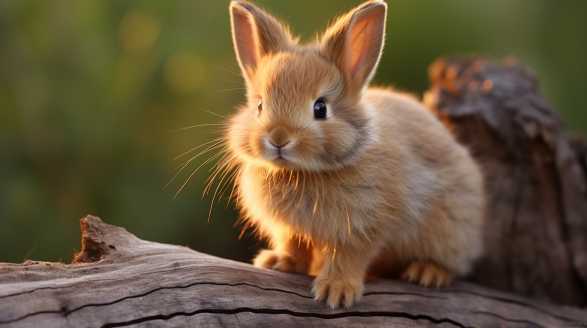
Are you a proud rabbit owner? Well, then you must be aware that these furry little creatures require special care and attention to live a long and healthy life.
So, let’s hop right into it!
Dental Problems:
Potential Risks:
Rabbits have continuously growing teeth, which can lead to dental problems if not properly maintained. Here are some dental issues you should be aware of:
- Overgrown Teeth: If a rabbit’s teeth become too long, they can cause pain, difficulty eating, and even abscesses.
- Malocclusion: Some rabbits may have teeth that do not meet correctly, leading to uneven wear and potential pain.
- Spurs: These are sharp, pointy edges that can develop on a rabbit’s teeth, causing irritation and discomfort.
Prevention Tips:
To keep your bunny’s pearly whites in check, follow these preventive measures:
- Offer a high-fiber diet, including plenty of hay, to promote natural wear and tear of teeth.
- Provide chew toys and safe objects for your rabbit to gnaw on.
- Regularly monitor your rabbit’s teeth and consult with a veterinarian if you notice any abnormalities.
Gastrointestinal Issues:
Common Troubles:
Rabbits have sensitive digestive systems, and several health issues can arise if their gut health is compromised. Here are a few common gastrointestinal problems:
- Gastrointestinal Stasis: This condition occurs when a rabbit’s gut slows down or stops functioning properly, often resulting from a poor diet or stress.
- Diarrhea: If your bunny’s stool becomes loose and watery, it may indicate an infection, poor diet, or other underlying issues.
- Bloat: Also known as gastric dilation, excessive gas can accumulate in the stomach, causing discomfort and potentially life-threatening complications.
Keeping Their Tummies Happy:
Tummy issues can be distressing for both rabbits and their owners, so take note of these preventive measures:
- Offer a balanced diet rich in hay, fresh vegetables, and limited pellets.
- Ensure your rabbit has access to clean water at all times.
- Avoid sudden changes in diet and provide a consistent feeding routine.
- Regularly exercise your bunny to stimulate their digestive system.
Respiratory Problems:
Warning Signs:
Rabbits are susceptible to various respiratory issues, and identifying the signs early on can make a significant difference. Look out for these symptoms:
- Sneezing and Coughing: Just like humans, rabbits can exhibit sneezing and coughing when they have respiratory problems.
- Nasal Discharge: If you notice any discharge from your rabbit’s nose, it might indicate an infection.
- Labored Breathing: Rapid or heavy breathing could be a sign of a more severe respiratory condition.
Taking a Breath of Fresh Air:
To help your rabbit breathe easy and promote respiratory health, consider the following tips:
- Maintain a clean and low-dust environment for your bunny.
- Avoid exposing your rabbit to cigarette smoke or strong chemical odors.
- Provide appropriate ventilation without exposing your bunny to drafts.
Parasites and Infestations:
Pesky Intruders:
Parasites can quickly become a nuisance for rabbits and, if left untreated, can lead to severe health issues. The most common parasites affecting rabbits are:
- Fleas and Ticks: These blood-sucking critters can cause discomfort, itching, and even transmit diseases to your bunny.
- Ear Mites: These tiny mites take up residence in a rabbit’s ears, leading to itching, head shaking, and potential ear infections.
- Fur Mites: These mites can cause itching, hair loss, and skin irritation in rabbits.
Sending Parasites Packing:
Keep your bunny parasite-free by following these preventive measures:
- Regularly check for fleas, ticks, and mites during grooming sessions.
- Ensure your rabbit’s living quarters are clean, and regularly change bedding.
- Consult with a veterinarian to establish a suitable parasite prevention plan.
Alright, fellow rabbit enthusiasts, we’ve covered the common diseases and health issues that can have an impact on your furry friend’s lifespan. Remember, providing a nutritious diet, attentive dental care, and proactive veterinary check-ups can go a long way in ensuring a healthy and lengthy life for your bunny buddy.
Remember, if you ever have any concerns about your rabbit’s health, it’s always best to consult with a veterinarian who specializes in rabbit care.
Conclusion
Wow, that was quite the rabbit adventure, wasn’t it? We’ve explored the fascinating world of rabbits from their natural habitats to our cozy homes.
We’ve learned about the common diseases and health issues that can impact their lives and how to mitigate them. And throughout this incredible journey, one thing has become abundantly clear: our furry friends rely on us, their devoted caretakers, to provide them with the best possible care and love.
By understanding the complexities and intricacies of their lives, we have the power to enhance their lifespan and overall happiness. It’s up to us to create a safe and nurturing environment, to provide a balanced diet and the necessary veterinary care, and to engage in meaningful social interactions.
So, let’s embrace our roles as rabbit enthusiasts and caretakers, and make a commitment to the well-being of these charming creatures. Let’s provide them with the love, care, and attention they deserve.
As we bid farewell to this rabbit-filled adventure, let’s remember the wonders we’ve uncovered together. May we continue to cherish and protect these marvelous creatures, ensuring that their hop-filled journeys last for many more years to come.
Here’s to a future filled with happy binkies, snuggle-filled cuddles, and boundless joy with our beloved rabbits. Cheers to the incredible journey we’ve embarked upon, and may it continue to be filled with wonder, love, and bunny-filled bliss!
Frequently Asked Questions
How long do rabbits live?
On average, domesticated rabbits tend to live for 8 to 12 years. However, the lifespan of a rabbit can vary depending on various factors such as breed, genetics, diet, environment, and overall healthcare.
What is the lifespan of a wild rabbit?
Wild rabbits generally live for a much shorter period compared to their domesticated counterparts. On average, wild rabbits have a lifespan of about 1 to 2 years due to environmental hazards, predators, and limited access to adequate food and medical care.
Can the lifespan of a rabbit be increased?
While a rabbit’s lifespan is ultimately determined by factors beyond our control, there are certain measures you can take to help increase their lifespan. Providing a well-balanced diet, regular veterinary check-ups, a safe and comfortable living environment, and giving them plenty of mental and physical stimulation can contribute to a longer and healthier life for your pet rabbit.
Do dwarf rabbits live longer than other rabbit breeds?
Dwarf rabbits, also known as miniature rabbits, have an average lifespan similar to other rabbit breeds, which is typically around 8 to 12 years. However, individual differences can occur due to genetic factors or specific health conditions, so it’s essential to provide proper care and attention regardless of the breed.
How can I ensure my rabbit lives a long and healthy life?
To help your rabbit live a long and healthy life, it is crucial to provide them with a balanced and appropriate diet consisting of hay, fresh vegetables, and a limited amount of pellets. Regular exercise, a safe and clean living environment, routine veterinary care, and proper socialization and mental stimulation are equally important aspects of ensuring your rabbit’s overall well-being.
What are some common health issues that can affect a rabbit’s lifespan?
Rabbits can be susceptible to various health issues, including dental problems, hairballs, gastrointestinal stasis, respiratory infections, and diseases like myxomatosis or rabbit hemorrhagic disease. Timely veterinary visits, proper diet, and attentive care can help mitigate these health concerns and promote a longer life for your rabbit.
How can I tell if my rabbit is aging?
As rabbits age, they may exhibit certain signs such as decreased activity level, changes in eating habits, reduced grooming, weight loss or gain, and an increased susceptibility to diseases. Regularly monitoring your rabbit’s behavior, appearance, and overall well-being, along with periodic veterinary check-ups, can help you identify and address age-related issues promptly.
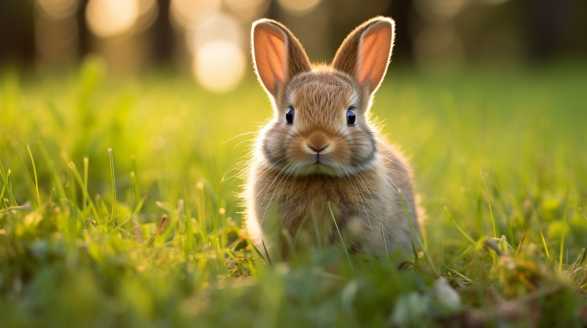
How To Stop Rabbits From Destroying Your Lawn
Introduction Hey there, fellow gardeners and lawn enthusiasts! We all love the sight of a perfectly manicured lawn, don’t we? That’s why I’m here today to share some fantastic solutions to help you reclaim your lawn from these furry invaders. we’ll explore a variety of chemical-free remedies and DIY methods to keep rabbits away from […]
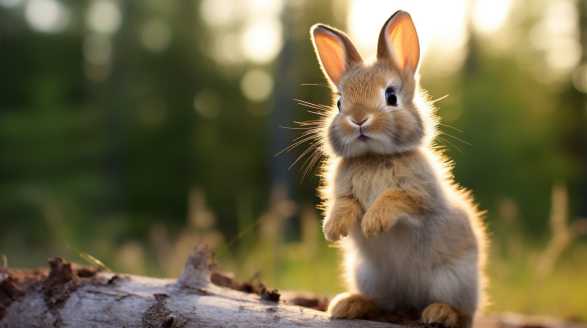
Do Rabbits Recognize Their Owners
Introduction Have you ever wondered if your fluffy, hoppy companion recognizes you as their owner? Many rabbit owners, including myself, have pondered this fascinating question. After all, rabbits are known for their adorable faces and unique personalities. we’re diving deep into the world of rabbit cognition and exploring whether rabbits can form emotional bonds, identify […]
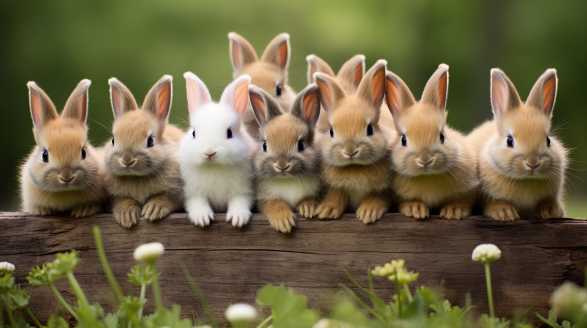
All About Rabbit Colonies
Introduction As a self-proclaimed animal enthusiast, I’ve spent countless hours observing and studying the incredible world of wildlife. But today, I’m thrilled to look into one of my absolute favorite creatures of all time – the wild rabbit! Picture this: lush green fields, a gentle breeze, and a community of wild rabbits scurrying about with […]
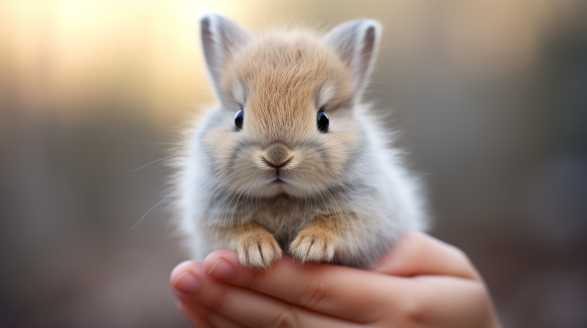
Do Rabbits Know Their Names
Introduction Have you ever wondered if your furry rabbit friend can actually recognize its name? As a proud rabbit owner myself, I’ve always pondered this intriguing question. I’ve done some thorough research, gathered expert opinions, and even tapped into my own personal experiences to bring you all the juicy details. We all know that rabbits […]
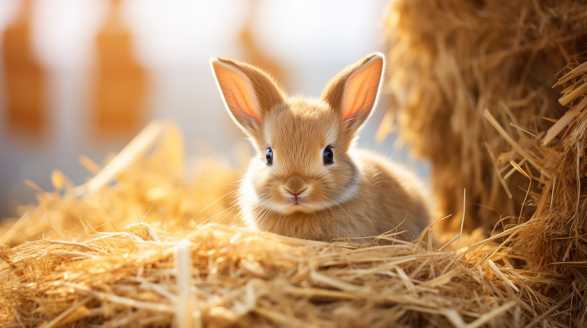
Straw Bedding For Rabbits
Introduction Hey there rabbit owners! Are you looking for the ultimate guide to maintaining straw bedding for your furry friends? As a fellow rabbit enthusiast, I understand the importance of providing our fluffy companions with a comfortable and clean living space. That’s why I’ve put together this comprehensive article to help you master the art […]
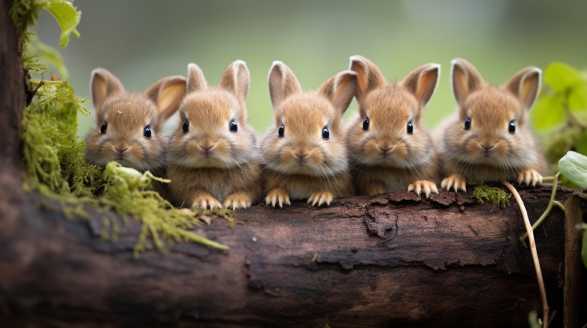
How Many Babies Do Rabbits Have
Introduction Hey there, rabbit enthusiasts! Are you ready to dive into the enchanting world of rabbits and explore their extraordinary reproductive abilities? we will unravel the mysteries behind the rapid breeding capabilities of rabbits and discover the secrets behind their impressive population growth. From the basics of rabbit reproduction to the unique traits of different […]
